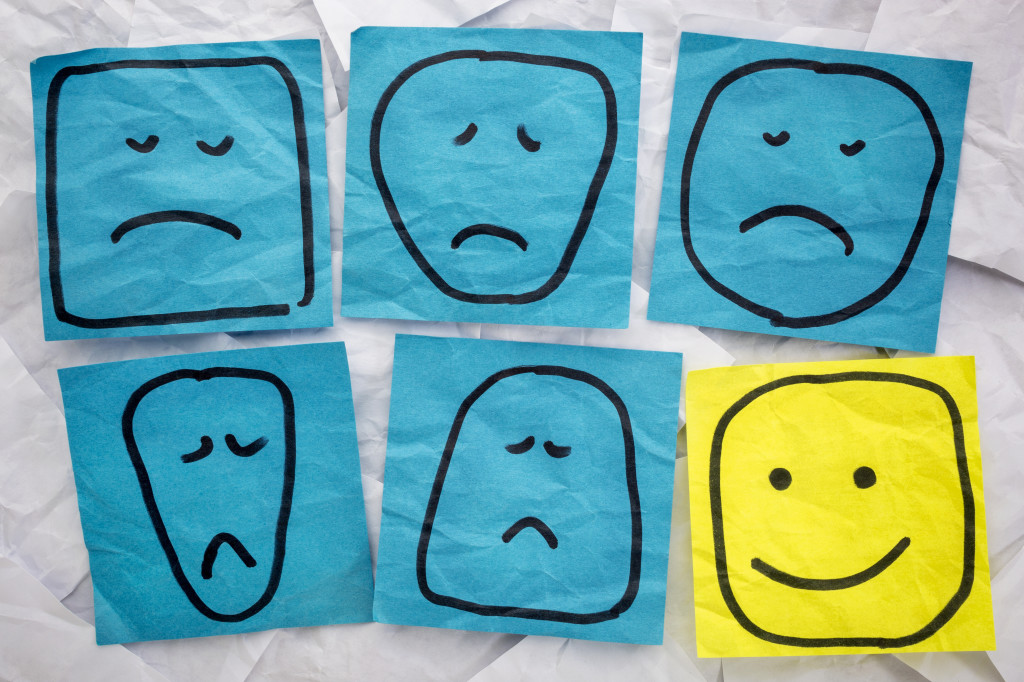 Depression has gotten a makeover. It is no longer a disease of the mind. According to researchers, there is a direct correlation between depression and inflammation in the body.
Depression has gotten a makeover. It is no longer a disease of the mind. According to researchers, there is a direct correlation between depression and inflammation in the body.
What is Inflammation?
Inflammation occurs when a group of proteins known as cytokines access the brain and send out signals of sickness or depression. Cytokines usually develop in response to an infection in the body and have been known to impair learning and memory.
Depression May Be Caused By Long Standing Inflammation
Research has established that pro-inflammatory cytokines induce not only symptoms of sickness, but also true major depressive disorders in physically ill patients with no previous history of mental disorders (Dantzer et al, 2008). Distress and anxiety have been shown to stimulate the pro-inflammatory cytokine network.
“I don’t even talk about it (depression) as a psychiatric condition any more. It does involve psychology, but it also involves equal parts of biology and physical health,” stated George Slavich, a clinical psychologist at the University of California in Los Angelos.
Pharmaceutical experiments have shown that taking an antidepressant along with an anti-inflammatory drug has helped decrease symptoms in individuals with depression.
How to Treat Inflammation Naturally
Individuals suffering from damaging inflammation and depression may also find relief by switching to a diet rich in foods with anti-inflammatory properties.
These foods include:
- fresh organic fruit
- fresh or frozen organic vegetables
- wild fish
- whole grains
Studies have shown that eating a diet high in Westernized foods, such as processed sugar, fried food, refined grains and alcohol, have a higher risk for developing depression.
A juice or smoothie cleanse may be beneficial for eliminating dangerous toxins that may be causing inflammation. Cleanses can last anywhere from 1 to 10 days, and should include a variety of fruits and vegetables.
Individuals on a cleanse diet should avoid animal products during the duration of their fast. Reintroduce whole grains and animal products back into your diet slowly when the fast has ended and be sure to note how each food makes you feel.
Exercising Can Improve Depression
Exercise targets many aspects of brain function and overall health. Regular physical activity releases anti-inflammatory signals in the body, reducing the symptoms of inflammation and clinical depression.
Individuals who reported performing frequent and intense physical activity showed lower inflammatory concentrations in recent studies.
Reasons for the link between exercise and reduced inflammation are being further studied; however, researchers believe it may have something to do with adiposity. Furthermore, physical inactivity during childhood has been linked to depression in adults.
During exercise, anti-inflammatory cytokines are released, reducing damaged muscle cells, fatigue, pain and inflammation. The best types of exercise for treating depression and inflammation appear to be aerobic, such as running, cycling and walking.
More Natural Ways to Help Beat Depression
Relaxation techniques such as meditation and yoga have also proved beneficial in managing stress, which can cause inflammation.
Certain herbs and supplements may also help treat depression and inflammation, including:
- St. John’s Wort
- B vitamins
- Omega-3 fatty acids
- White willow bark
- Turmeric
- Green tea
- Boswellia
- Choline
Supplements may be able to take the place of clinical medication in some instances. Unlike their harsh counter partners, herbal supplements may have fewer side effects. For example, NSAIDs have been linked to stomach problems and ulcers.
In addition to herbal supplements, essential oils can help reduce inflammation and depressive symptoms. Lavender oil aromatherapy is a popular oil used to treat anxiety. Lemon balm, valerian, passion flower and St John’s Wort have all been approved by the German Authority Commission for treating nervousness, depression and insomnia (Shenefelt 2011).
Some herbal supplements may have a negative interaction with prescription medications, so be sure to advise your doctor of all supplements you are taking.
You Can Beat Depression (and Prevent it) Without Drugs
To recap, there are many things that can be done to reduce inflammation and the chance of developing depression.
To beat existing depression, think about first treating inflammation and to prevent developing depression be proactive in preventing inflammation.
This can be achieved naturally by eating an anti-inflammatory diet, reducing stress, exercising and supplementing with herbs and essential oils. The mind and body were designed to work together. One cannot remain healthy if the other is sick.
Other important aspects of an inflammation free lifestyle include positive thinking and treatment of others. Self image, self confidence and happiness all play a role in brain and body health. Making healthy changes can reduce inflammation and combat the stigma that mental health is all in your head.
References Dantzer, R., O’Connor, J., Freund, G., Johnson, R., & Kelley, K. (2008). From Inflammation To Sickness And Depression: When The Immune System Subjugates The Brain. Nature Reviews Neuroscience, 46-56. Shenefelt, P. (2011). Herbal Medicine: Biomolecular and Clinical Aspects. 2nd Edition.